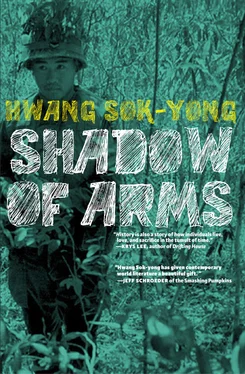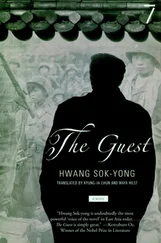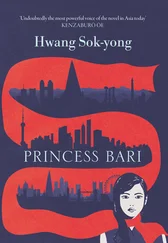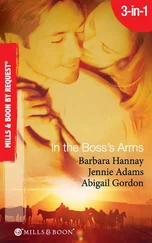“Good job.”
He got into the lieutenant’s Jeep and they drove up along the barbed wire on the perimeter of the new hamlet. Outside the trail were two more layers of barbed wire encirclements, and beyond them, a deep trench had been dug for defensive emplacements. He could see the new houses standing there, ready for occupancy. They were made of cement and adobe. Each had been neatly painted white and the windows had bamboo shutters.
“What will be the inspection route?”
“The front row of houses, the community laundry, the public toilet, the school, the playground, and the village hall. The ceremonial ribbon is over there at the main gate of the village.”
They were heading toward the village hall where the dedication ceremony was to be staged. American and Vietnamese flags were hanging everywhere, and streamers with flags of the United Nations member countries were hanging stiffly, like fish from the Thu Bon strung up to dry. Waves of girls in ahozais came into view. The girls, bouquets and wreaths in their arms, must have been students from Hoi An.
Already seated on the raised platform were the police band, American and Vietnamese staff from the troop information and education section, a few domestic and foreign reporters, and some prominent local citizens. A pair of MPs were standing guard at either end of the platform. Overhead was a large banner with “Congratulations on the Opening of the Phoenix Hamlet” written in the center and the words “Peace” and “Freedom” in big letters on the two ends. A familiar-looking American major from the advisory council got out of a car and extended his hand to Pham Quyen, and said, “Congratulations.”
Pham Quyen looked at his watch again and added, “From now on An Diem will know peace.”
“The provincial government still has a lot work ahead of it before peace comes to the whole of Quang Nam Province.”
“And what gifts have you brought to commemorate the founding of this settlement?”
“We’ve supplied some sturdy American spades and other farming implements. It’s not enough to go around, but they can be shared.”
“Good idea. Things were different back a few years ago with the strategic hamlets. At one dedication ceremony, there was an excess of several thousand toothbrushes. At another, they opened crates to find heaps of chocolate.”
“We’re well aware of those incidents. Another extreme case occurred when somehow women’s curlers for permanents were delivered by the bushel. A bureaucratic error.”
They heard the noisy whir of approaching helicopters in the distance. A formation of aircrafts — the governor’s helicopter, a Cobra obtained from the US Marines; followed by a Chinook and two more gunships in the rear. Pham Quyen quickly got into the lieutenant’s Jeep.
“All the houses have been checked?”
“Yes, sir. We went over all of them this morning with a mine detector. And the platform was double-checked again just a half hour ago.”
“Well done.”
The escort gunships hovered above while the Chinook descended first. The American advisory council emerged from inside. The welcoming party all saluted. They waited for the governor around the helipad perimeter. His Cobra landed and the general got off with a kind, smiling demeanor. Disembarking behind him was a tall American civilian, the only one there wearing a suit and tie, who waved. The two shook hands with each and every one of the American and Vietnamese officers who had arrived before them.
With the lieutenant’s patrol Jeep in the lead, they approached the venue of the ceremony. The police band played “The Double-Headed Eagle.” As they mounted the platform, all of the prominent leaders of the An Diem community stood up and the future residents of the new hamlet who had been squatting in front of the platform also nervously got to their feet. Everyone applauded.
Pham Quyen stood before the platform. He waited until everyone took their seats and then said in Vietnamese,
“The official dedication ceremony will now begin.”
He then repeated it in English. A Vietnamese flag was raised over the empty hamlet commons, and the national anthem, composed in the time of the People’s Party, was played. The old people kept their lips firmly sealed. The soprano voices of the girl students were at too high a pitch. The flag with its three red lines on a field of yellow fluttered.
Next, The Star-Spangled Banner was raised. Only the American officers saluted. The brass band played a clumsy rendition of “The Stars and Stripes Forever.” The flag was beautiful, its many white stars shining on the blue background in perfect harmony, recalling how the nation’s new territories had been integrated as it expanded.
“There will be a congratulatory address by Mr. Butler, the representative of the AID Mission in Da Nang,” announced Pham Quyen.
The civilian who was the sole person in the crowd dressed in a suit kept wiping droplets of sweat from his neck and forehead with a handkerchief. His white suit, white shirt, and dark orange tie made him look like a hotel guest, the kind often seen in Southeast Asia. The winds blowing west from the sea had stopped and the steaming heat of the jungles lying to the east seemed to get trapped and stagnate in the bottle-shaped valley. Butler bowed to General Liam before taking the podium. He removed a prepared speech from the pocket inside his suit jacket and, holding it in his hand, read slowly and distinctly.
“Honorable Governor, prominent citizens and new residents who are gathered here together, I consider it a great honor to be able to stand before you today as the representative of the people of America. Ever since the United States of America came to this land to uphold freedom and peace for our ally, the Republic of Vietnam, the hopes of the Vietnamese people have been one and the same with our American people.”
Pham Quyen was acting as interpreter, so Butler paused in his speech and gave a quick glance down at Pham Quyen at the foot of the platform. Without even referring to any notes, Quyen interpreted the address for the villagers.
“General Liam, Governor of Quang Nam Province and Commander-in-Chief of the Armed Forces of Central Vietnam, Mayor of Hoi An, and villagers, I wish to convey the fact that our aid here has been the result of a request from General Liam himself. The American people are fully aware of the many difficulties facing the Vietnamese people, and we are prepared to leave this land of yours when it is possible for the Vietnamese people to live in peace and prosperity.”
Before turning around to Butler, Pham Quyen muttered in a low voice, “Applaud, applaud.”
The expressionless villagers clapped their palms together. In any event, their faces were half-hidden in the shadows of their big cone-shaped hats. Mr. Butler, a magnanimous smile on his face, waited for the applause to subside before he continued.
“Freedom from poverty, freedom from fear, freedom from suppression of free speech, and the right to defend oneself against foreign intrigues or attacks and to decide one’s own future — all these are bestowed upon you. Communists today are indulging in provocations all over the free countries of Asia, trying to wipe out these hopes just mentioned. They started the war in Vietnam, their goal to infiltrate the Free World.
“The ravages of war in Vietnam cannot be blamed on anybody and the future of the Vietnamese people lies with you yourselves. Not only here in Vietnam but all over the world, the Communists are stirring up wars, and the Americans are fighting wherever necessary to save their brothers. Wherever there are Communists, there are American soldiers.
“If Vietnam is overrun by these violent terrorists, the Communists, then Thailand, Burma, Malaysia, Indonesia, and the Philippines will also fall one by one, and that would mean a state of slavery for all the peoples of Southeast Asia.
Читать дальше












